2022 Gulf Guardian Award Winners
On This Page:
About the Gulf Guardian Awards
The Gulf of Mexico Program Partnership developed the Gulf Guardian awards as a way to recognize and honor the businesses, community groups, individuals, and agencies that are taking positive steps to keep the Gulf healthy, beautiful and productive. The Gulf Guardian Award exemplifies what the Gulf of Mexico Program is all about: innovative solutions that come about when we pool resources and look for creative ways to positively impact our quality of life and economic well-being.
The first Gulf Guardian Award winners were recognized in 2000. This year, a first, second and third place award were given in five categories:
- Business/Industry
- Civic/Non-Profit Organization
- Partnerships
- Youth Environmental Education
- Individual
Since 2009, the Gulf Guardian awards are recognized on a biannual basis.
First Place Gulf Guardian Winners
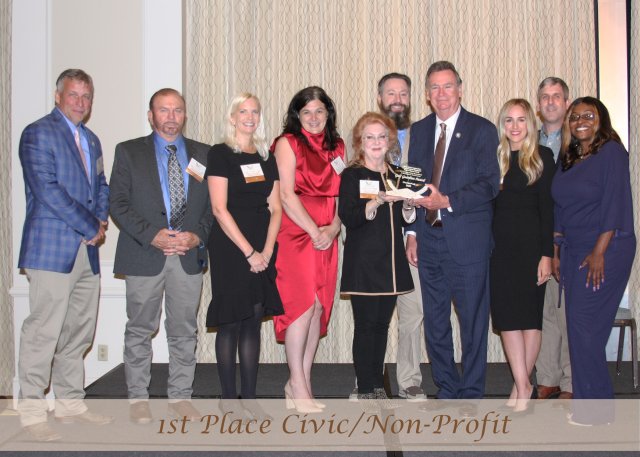
1st Place Civic/Non-Profit Organization
Home System Inspections in Decentralized Wastewater Areas of Bayou Liberty St. Tammany Parish Government & Pontchartrain Conservancy Mandeville, LA
In partnership with Pontchartrain Conservancy, St. Tammany Parish has looked to improve watersheds in the Parish through a cooperative approach. PC was tasked with conducting door-to-door inspections in the Ozone Woods subdivision. The PC team inspected home wastewater systems in the project area and provided homeowners and residents with instruction and education on proper operation and maintenance. By the completion of the project, 347 onsite wastewater systems (ATUs) and 82 septic tanks became compliant or functional as a result of the inspection program.
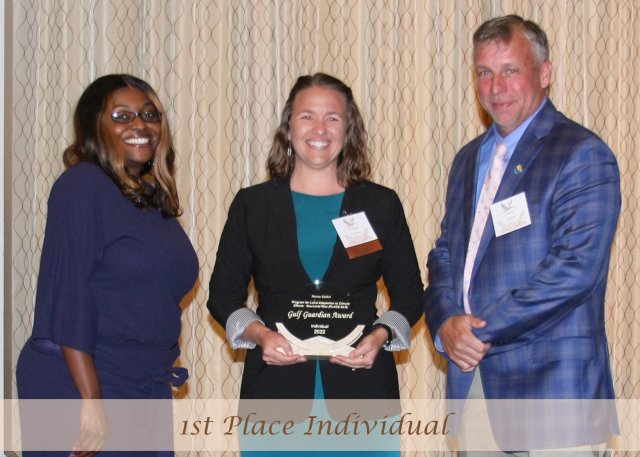
1st Place Individual
Renee Collini
Program for Local Adaptation to Climate Effects: Sea-level Rise (PLACE:SLR) Biloxi, MS https://youtu.be/e-n6tf6MHBM
Renee Collini is the Coordinator for the Program for Local Adaptation to Climate Effects: Sea-Level Rise (PLACE: SLR). Her focus on actionable science and stakeholder engagement have made a significant positive impact on sea-level rise resilience in MS, AL, and northwest FL. Under her guidance, PLACE: SLR has helped to advance and communicate storm surge and marsh modeling, develop a sea-level rise curriculum, fund community and ecosystem resilience projects, and integrate sea-level rise into municipal-level planning. Renee’s genuine commitment to the people of the northern Gulf and unparalleled work ethic make her an asset to the Gulf community.
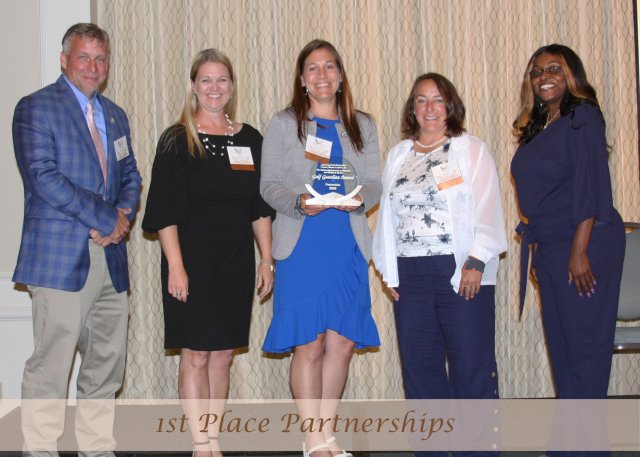
1st Place Partnerships
Lightning Point Restoration Project
The Nature Conservancy in Alabama, Mobile, AL
For the Lighting Point Restoration Project, the Nature Conservancy constructed one mile of overlapping segmented breakwaters and jetties and utilized more than 240,000 cubic yards of dredged material to create 40 acres of marsh and upland habitats and 10,000 linear feet of tidal creeks. This project resulted in creating diverse habitats to support a wide range of fish, shellfish, and birds, while protecting this locally important waterfront area of this iconic town for fishing community culture.
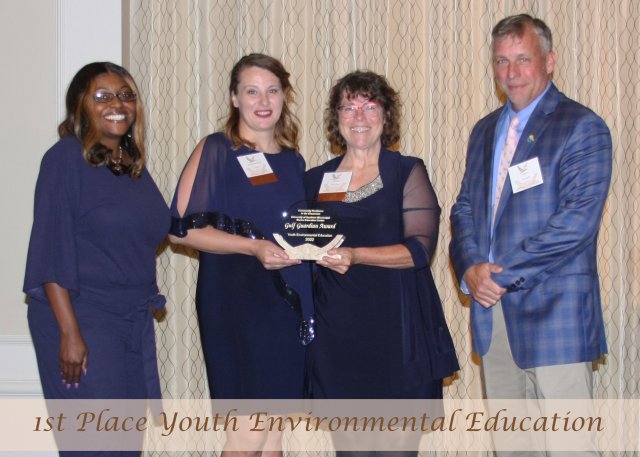
1st Place Youth Environmental Education
Community Resilience in the Classroom
University of Southern Mississippi Marine Education Center Ocean Springs, MS
Community Resilience in the Classroom is an educational program developed by USM and Mississippi Alabama Sea Grant Consortium with local K-12 schoolteachers to promote student awareness of watersheds and their connections to the Gulf of Mexico through classroom and field instruction in climate change and rising sea level, especially high tide flooding and increased storm surge. Since 2016, over 1000 students from 12 schools in Mississippi and Alabama have completed the program. Selected teams have competed in six Stewardship Summits judged by several dozen community resilience professionals. In 2020 the full program of teacher training and classroom implementation was successfully completed online.
Second Place Gulf Guardian Winners
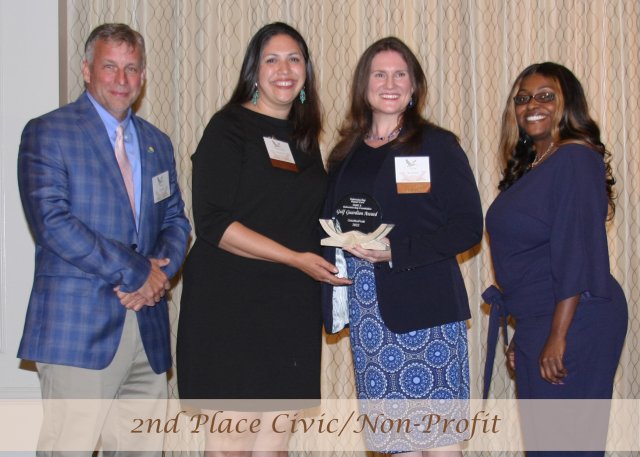
2nd Place Civic/Non-Profit Organization
Galveston Bay Report Card
Houston Advanced Research Center Corpus Christi, TX
The program is built on the annual analysis of 22 environmental indicators across six categories: habitat, water quality, human health risk, pollution events and sources, wildlife and coastal change. Results are used to guide the direction of environmental work and provide opportunities for the public to become environmental stewards of Galveston Bay and its watershed. The program serves as the model for watershed report cards, with outreach efforts directly connecting to 5,700 people each year and media outreach to hundreds of thousands more.
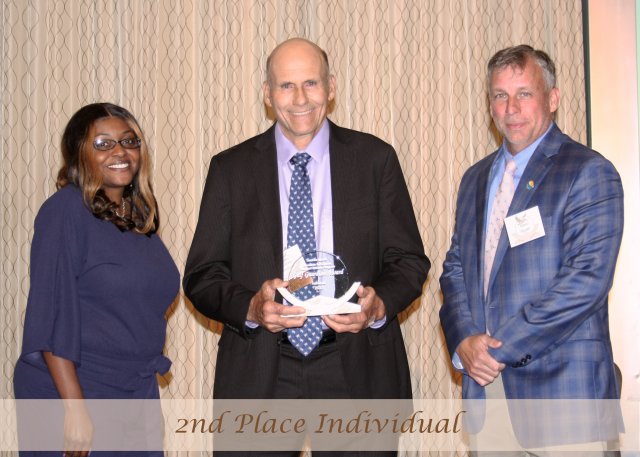
2nd Place Individual
Andrew Barron
Barataria-Terrebonne National Estuary Program Thibodaux, LA
Andrew Barron is a prominent scientist that has devoted 25 years to water quality research and education. He is well respected in the science community for his work with the Barataria-Terrebonne National Estuary Program (BTNHEP). His expertise goes further than water quality as Mr. Barron can be found teaching on Louisiana’s land loss issues, edible plants, soil types, invasive species, and cultural sciences.
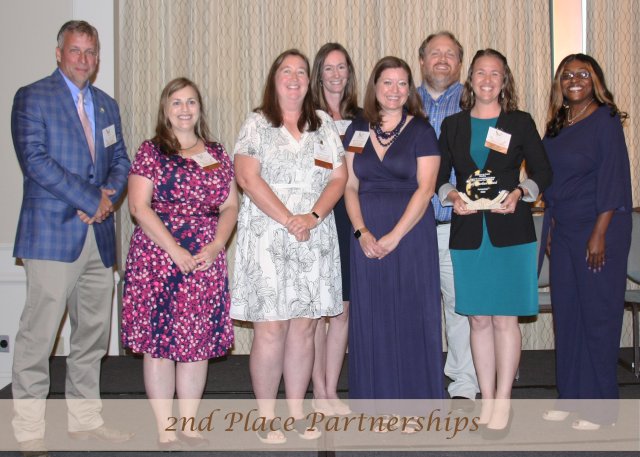
2nd Place Partnerships
Resilience to Future Flooding
Program for Local Adaptation to Climate Effects: Sea-level Rise (PLACE:SLR) Biloxi, MS
The Resilience to Future Flooding project addresses communication and financial barriers to sea-level rise (SLR) resilience in the northern Gulf of Mexico by providing 1) videos describing the science and impacts of SLR and case studies on SLR resilience, and 2) funding for five community resilience projects. The project engaged both professional and non-technical audiences, resulting in better understanding of SLR impacts and increased knowledge of adaptation opportunities. It also increased how often SLR is discussed and directly enhanced future flood resilience across the region. Further, this project has added innovative and novel examples of SLR resilience across the Gulf.
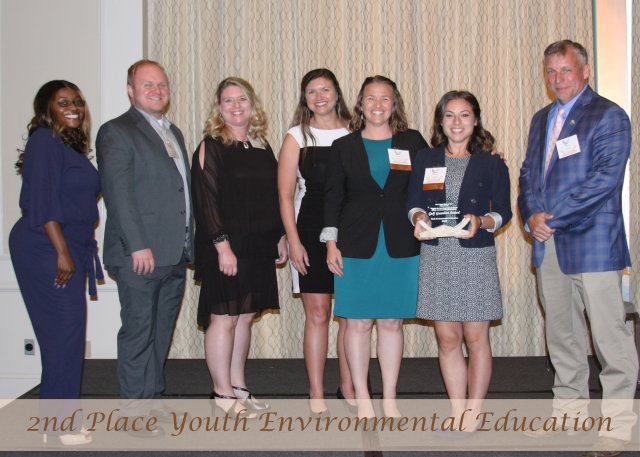
2nd Place Youth Environmental Education
Sea-Level Rise in the Classroom
Program for Local Adaptation to Climate Effects: Sea-level Rise (PLACE:SLR) Biloxi, MS
The Sea-Level Rise in the Classroom curriculum is the first comprehensive sea-level rise curriculum in Mississippi and Alabama. The curriculum, which was born of a need voiced by local educators, integrates science and civics to provide students with a holistic understanding of the causes, impacts, and approaches for resilience to sea-level rise. The curriculum was co-developed by a team of subject matter experts and educators and refined through rounds of iterative testing. After engaging with the curriculum, both educators and students have demonstrated knowledge gain and behavior change, helping to achieve the goal of an empowered and informed coastal citizenry.
Third Place Gulf Guardian Winners
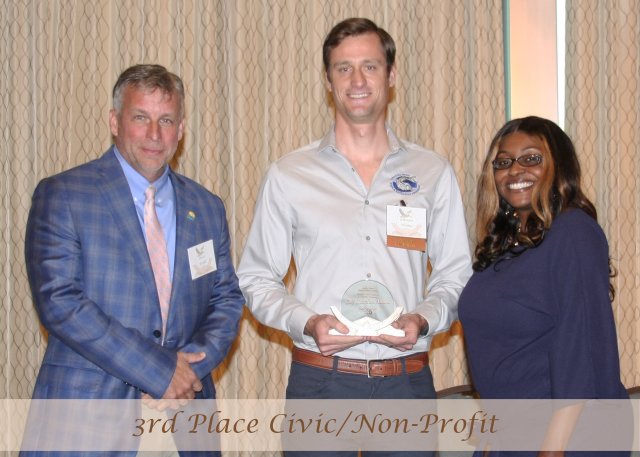
3rd Place Civic/Non-Profit Organization
Egery Flats Restoration Project
Coastal Bend Bays & Estuaries Program Corpus, Christi, TX
The purpose of this project is to restore hydrology and reduce salinity in the Egery Flats marsh area, which has lost about 100 acres of emergent marsh in the past 60 years. Egery Flat is a 600-acre semi-enclosed basin near the confluence of the Aransas River and Copano Bay. To measure the success of the project, CBBEP worked with the Mission-Aransas National Estuarine Research Reserve at the University of Texas Marine Science Institute and Texas Parks and Wildlife Department to collect valuable data. The data will help determine the effectiveness of the culvert replacement and success of the restoration project.
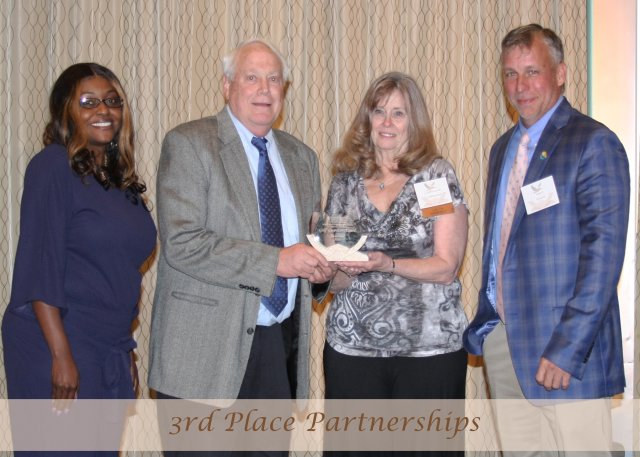
3rd Place Partnerships
Advancing Best Practices for Seagrass Monitoring in the Gulf of Mexico
Gulf of Mexico Seagrass Monitoring
Community of Practice Eureka Springs, AR
Since its inception in 2017, the CoP has been active in gathering expertise, identifying information priorities, synthesizing existing needs and coordinating with scientists and resource managers in the Gulf. This has been accomplished through workshops, expert webinars, as well as numerous group meetings and calls. These efforts have resulted in a series of reports including the 2017 Need Assessment Workshop Report, a dynamic web-based Citation Inventory, guidance documents and the Gulf of Mexico Status and Trends Update Report for 2020. At this stage, there is now a well-established network of experts routinely communicating in the region and coordinating on project activities.
